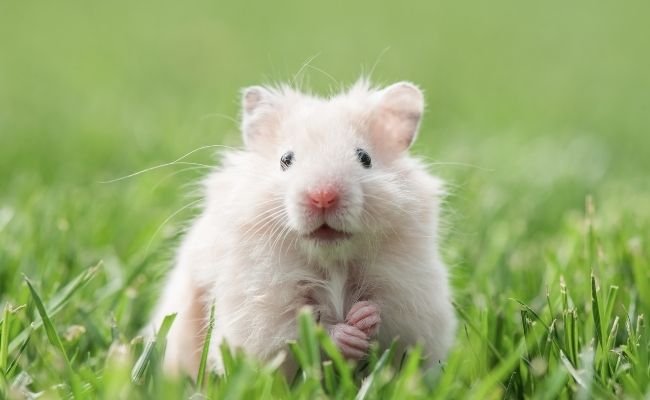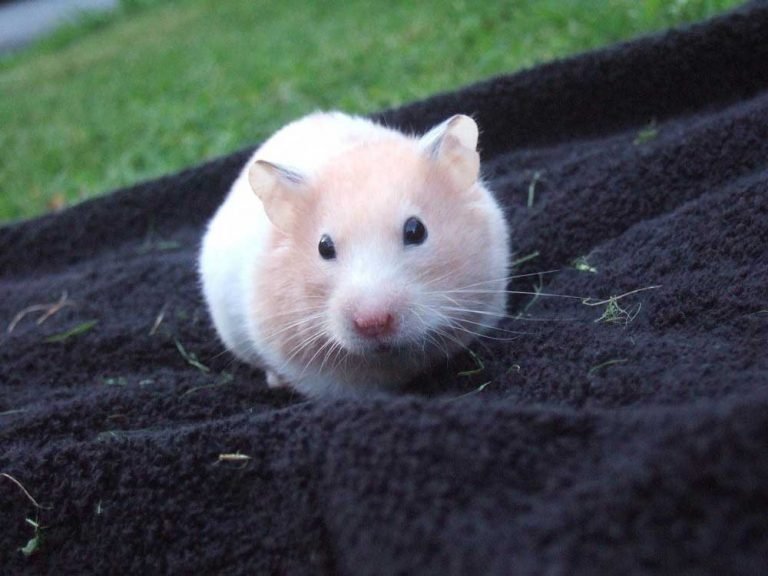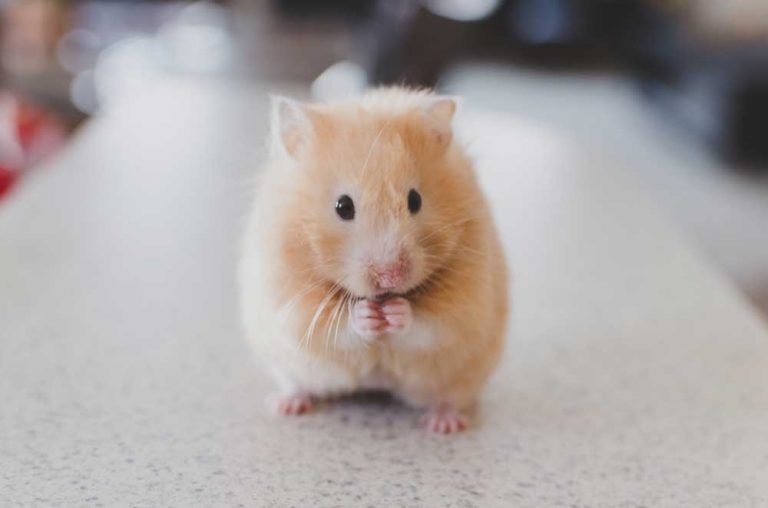18 Reasons Not To Get A Hamster
Hamsters are such cute and lovely beings we all love. It’s no wonder they are among the most popular pets around the world. These lovely fluffy furballs are simply a joy to have around.
However, like with any other pet, everything about hamsters isn’t rosy. These little beings also have their other side, too. Sure, the positive parts of hamsters far outweigh the negative parts, but it’s still worth knowing the cons of having one around.
And yes, that’s the primary objective of this article. To show you the negative sides of having a hamster around.
So here, in no particular order, are reasons not to get a hamster!
18 Reasons Not To Get A Hamster
1. They Require A Lot Of Attention
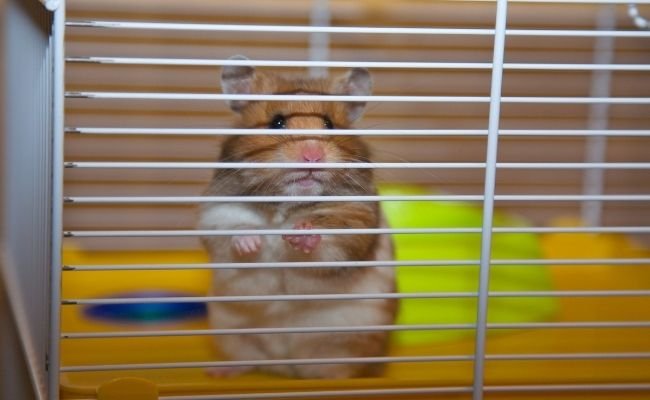
Don’t let their small sizes fool you into thinking that they won’t need a lot of care and attention. On the contrary, hamsters require a lot of care and love from their human owner!
They’re very active little beings who will want to always claim some time in your day. So, yes, if you want to become a pet owner, ensure that you have time for your hamster on a daily basis so they can play and be there with you.
Again, hamsters can’t survive in dirty cages. You have to clean their beddings and houses regularly. Therefore, before you get one, just be sure that you are ready to maintain a clean cage all through!
2. Hamsters Are Super Sensitive
If you’ve lived with a hamster for quite some time, you will know that they are super sensitive. Very, very sensitive! For instance, no single meal works best for all hamsters. It’s up to you to find out what foods and hamster treats work best for your hamster.
Sure, there are some common meals that go well for most hamsters, but every hamster has their own dietary requirements. Therefore, if you are planning to get one, ensure that you never take their diet for granted.
But that doesn’t mean that you try out foods considered unsafe for your pet. They are simply put on the “never” list because they are well known to give your hamster diarrhea or other serious health conditions.
3. Hamsters Have A Short Lifespan
One thing we all want for our pets; to live long, happy lives. Unfortunately, that’s not the case with hamsters! The average lifespan of a hamster is about 2 to 3 years.
We don’t mean you will wake up to a dead hamster after they get past three. Yours can exceed, but that’s not something that happens too often! In fact, most of them die prematurely, so one needs to always be vigilant and watch out for any signs of sickness or distress. That will help you catch the problem early and get it fixed in time!
4. Not Good With Children

Hammies can be very lovely with children, but they are not suitable to live with young children. You see, it’s relatively easy for children to drop them or accidentally hurt them when playing.
Hamsters are very vulnerable and therefore, not suitable pets for children. If you’re planning to get one as a pet for your child, then please plan to first have training sessions for your junior to have a better understanding of hamsters and how to best handle them. That’s one surefire way to ensure that the interactions between them go smoothly all the time! It’s possible for a hamster to make a great pet for children!
5. Hamsters Are Not Very Affectionate
If you’ve had one of the cuddly dog breeds, then you will know that most of them are very affectionate. Dogs, for instance, love cuddling and simply being there with you the whole time.
Hamsters more often don’t seem to offer that! They can be affectionate, but it’s rare to find an affectionate hamster. My Syrian friend here is very affectionate, but not all hamsters are like her.
6. They Can Be Messy
If you’ve seen how hamsters sleep or rest in their habitats, then you know that they are really messy! Especially if they have long fur like the Syrian hamster, they will always collect messes around their sleeping areas.
Their beauty is most of the time marred by all this messiness. They’re generally clean animals, but they don’t always do a great job of keeping themselves clean. So, be prepared to always clean up after them!
7. They Are Nocturnal
Hamsters are known for being active at night. While they may seem alert and active during the day, hamsters’ eyes are made to work better at night. In fact, they are nocturnal animals, which means they can see very well at night!
Being nocturnal isn’t any bad. However, we all want to interact with our pets when they are the most active. Unfortunately, with their nocturnal nature, hamsters are always livelier at times when we are enjoying our sleep.
The worst part is that they make a lot of noise when they are in their most active moments. Now, we all know that remaining awake because of a noisy hamster at night can be a very annoying thing, especially if you had a busy day and just want a peaceful sleep.
8. Hamsters Are Escape Artists
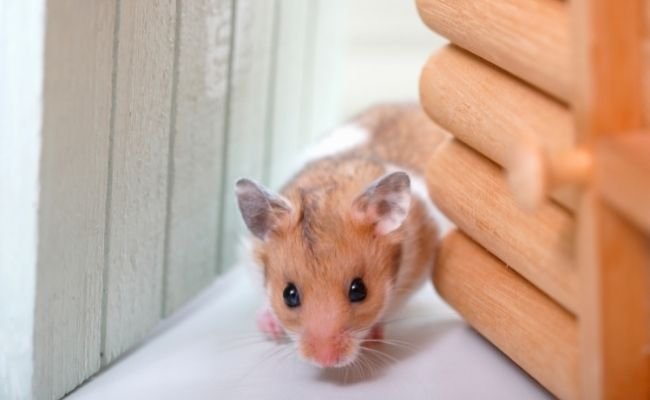
With their smaller sizes, hamsters will easily go through narrow spaces. They know how to flatten themselves to fit in very tiny spaces. And when they get the opportunity, what seems to come first in their mind is to escape and return to the wild.
The little furry friends can quickly escape from your homes if you don’t pay attention to them. They almost always seem to impress the idea, so just be very careful when if you are going to get one!
9. Risk Of Infection
As little as they are, hamsters can carry some serious diseases. And they can carry them around even before they show any signs of sickness! What’s worse, some of these diseases can easily be passed on to people.
For instance, hammies are proven carriers of salmonella bacteria. They can carry the dangerous bacteria in their intestines and transmit it through their feces. That means you need to be very careful when dealing with these little fellas.
Hamsters can also carry Lymphocytic choriomeningitis, a rare disease that can be transmitted to people through their urine. There are many more diseases hamsters carry, so make sure you are aware of this before you opt to get one for your family.
10. Risk Of Hereditary Diseases
One of the negatives of hamster ownership is that they can inherit some conditions from their parents. These conditions are passed down to the next generation. Examples include incisor malocclusion, obesity, diabetes, and fur and skin infections.
While some of these hereditary diseases can be managed by medications, most of them are very difficult to treat and hamsters with inherited conditions will have an unpleasant life ahead. They can also develop amyloidosis, an incurable kidney disease. They simply are very prone to both congenital and
11. They Breed So Fast
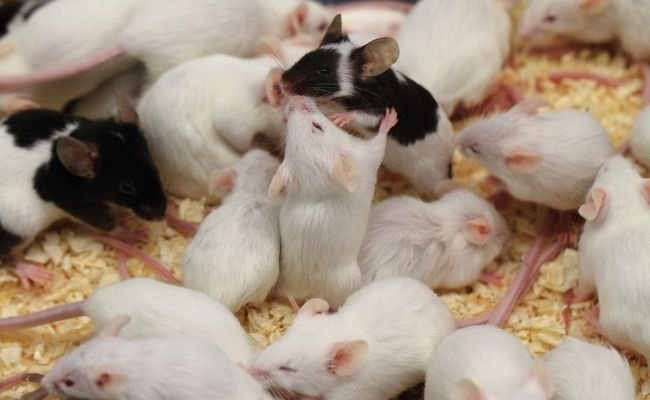
One of the things hamsters are great at is breeding. They breed like crazy! So, if you want to get a new pet and not many more babies running around your home, then you better think twice about getting a hamster.
They’re often very fertile and can give birth to litters of up to 12 pups or even more! Hamsters are ready for breeding only three weeks old, probably sooner than you expected. Again, they breed all year round!
That means the hamster population will grow at a fast pace if you don’t take good care of them. Hence, if you don’t want a big family of hamsters, then think twice before you get a pair of hamsters of the opposite sex.
12. Hamsters Are Very Fearful
Unlike the majority of home pets, hamsters tend to be very shy. These little furbabies fear very little things in the home environment. They only have a high level of alertness and sometimes just freeze or run away from their cages at the sight of anything they don’t recognize.
Keep in mind that hamsters were made to live in the wild. One principle of surviving in the wild is never to trust anything new you see. So, hamsters are naturally scared of very many things in their surroundings.
13. Hamsters Need Specialized Vets
We’ve all heard that regular vet visits go a long way to keeping our pets healthy. But what most people don’t know is that when it comes to hamsters, finding these doctors isn’t as easy as for the furry friends we keep at home.
Hamsters are considered “exotic beings”, meaning they need veterinarians that are very specialized in treating them. Unfortunately, pet doctors that are just as well versed in cats or dogs won’t do the trick! So, be prepared to spend more time finding the right one for your hamster.
14. Hamsters Can Bite!
You may have heard about hamsters being pretty calm pets. And most of the time, they are! But they also have their moments when they seem to be angry or very stressed out! At those times, these little furballs might try and attack you if you get too close to them.
Hamster bites are painful and might get infected quickly. So, it’s best to learn about hamster behavior before you decide whether they’re good pets for your family or not.
15. Hamsters Give Wheels Their Whole

One thing that hamsters seem to like the most is riding on their wheels. If you already have one, then you might have noticed that these little rodent pets seem not to have enough of their wheels! They always want to keep riding on them!
The idea of remaining active on their wheels in itself isn’t any bad. But what you need to understand is that not all pet homes come with a set of ready-made wheels for the hamsters. So, be prepared to get one if you’re planning to buy a hamster.
16. Not As Trainable
Unlike dogs, hamsters can’t be trained easily. They likely won’t listen when you call their names or will come when they see food is around. They are also very hard to litter train.
So, if you want a pet that can play fetch and catch up with your running kids, then think twice before getting a fuzzy little hamster! They seem just not to excel easily in that area!
17. They’re Not Easy Pets
Finally, while some of these little furballs can become loving pets, don’t expect it to happen overnight! Hamster training isn’t an easy task, especially because these are small pets with short attention spans.
You have to get used to being very patient when it comes to dealing with hamsters. But if you’re up for the challenge, then just go ahead and adopt one of these cute little furballs.
18. They Don’t Make Friends Easily
Hamsters aren’t like some dogs or cats who love to play and wag their tails around people they don’t know. These little furry pets are very shy. They don’t show their full potential in front of strangers.
So, keep this in mind when you want to introduce your friends to your new pet hamster! They might not be as “playful” as you expected them to be.
In Conclusion:
Hamsters are adorable little pets who can make interesting little friends. However, like with other pets, they have their pros and cons. So, make sure you can meet these critters’ needs and be responsible enough to keep them healthy and happy.
You should consider all the hamster facts we’ve outlined above before adopting one of these cuties! Getting a pet like this is a big responsibility, especially if it’s your first time getting an animal friend. So, do your homework and be sure before taking on a new furry friend.

